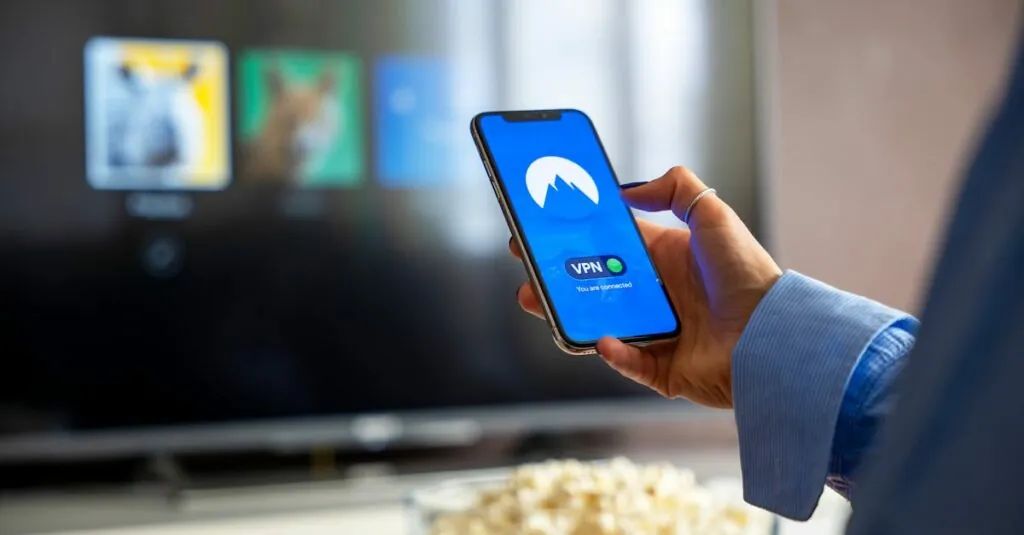Table of Contents
ToggleIn a world where smartphones have become an extension of ourselves, mobile app security is more crucial than ever. Imagine your favorite app turning into a digital pickpocket, sneaking away your personal info while you’re busy scrolling through cat videos. It sounds like a bad joke, but for many, it’s a reality.
Understanding Mobile Apps Security
Mobile app security involves protocols and measures designed to protect mobile applications from potential threats. App users must understand how security safeguards their personal information and data.
Definition of Mobile Apps Security
Mobile apps security refers to the practices and technologies that protect applications on mobile devices. It encompasses data encryption, secure coding, user authentication, and real-time threat detection. Developers implement these security measures to safeguard sensitive information. Users benefit from robust security features that prevent unauthorized access and data breaches.
Importance of Mobile Apps Security
Mobile apps security holds paramount significance in today’s digital landscape. With 45% of internet traffic occurring on mobile devices, vulnerabilities in apps can expose massive amounts of personal data. A single data breach can lead to financial loss and identity theft. Additionally, users often store sensitive information within apps, including banking details and health records. Protecting this data from malicious attacks ensures user trust and enhances the overall safety of mobile ecosystems.
Common Security Threats
Mobile apps face various security threats, with malware attacks and data leakage posing significant risks to users’ personal information.
Malware Attacks
Malware attacks target mobile apps through infected downloads or malicious updates. Cybercriminals use this technique to hijack devices and steal sensitive data. Users often download malicious apps under the guise of legitimate software. According to reports, 3.2 million mobile malware attacks occurred in 2021 alone. Once malware is installed, it can track user activities, access personal data, or even exploit banking details. Awareness is essential; regular app updates and installing security software help mitigate these risks.
Data Leakage
Data leakage refers to the unintended transmission of sensitive information from a mobile app. Organizations that fail to implement proper security measures risk exposing user data to unauthorized parties. For instance, improperly configured APIs may allow data to be accessed by malicious actors. Research indicates that over 50% of apps evaluated have significant data leakage vulnerabilities. Protecting user data requires encryption and strict access controls. Users must stay informed about app permissions and regularly check for privacy settings to minimize exposure.
Best Practices for Enhancing Security
Implementing best practices plays a crucial role in mobile app security. These strategies help protect personal data from various threats.
Secure Coding Practices
Adopting secure coding practices significantly mitigates vulnerabilities. Developers should prioritize input validation to prevent common exploits like SQL injection and cross-site scripting. They must also use well-known cryptographic libraries for data encryption, safeguarding sensitive information. Regular code reviews help identify security flaws early in the development process. Additionally, integrating security testing tools into the development lifecycle can reveal potential weaknesses before deployment. Following established security standards, such as OWASP’s Mobile Security Guidelines, enhances the overall robustness of the application.
Regular Updates and Patches
Regular updates and patches are essential for maintaining app security. Developers frequently release updates to address newly discovered vulnerabilities. Users should keep their apps updated to benefit from these enhancements. Notifications about available updates often encourage prompt action. Cybersecurity threats evolve rapidly, so timely patching can prevent exploitation of outdated software. Moreover, implementing an effective update strategy ensures that users automatically receive important security fixes. Neglecting these updates can expose devices to unnecessary risks, making vigilance critical in mobile app security.
Mobile App Security Testing
Mobile app security testing plays a critical role in safeguarding user information and safeguarding application integrity. Organizations employ various methodologies to identify vulnerabilities and enhance mobile app security.
Types of Security Testing
Penetration testing mimics cyber attacks to identify exploitable weaknesses. Static application security testing analyzes source code to reveal security flaws before deployment. Dynamic application security testing evaluates an app in a running state, assessing how it behaves under attack. Each type addresses unique security concerns. Conducting these testing methods regularly ensures comprehensive protection against evolving threats.
Tools for Mobile App Security Testing
Numerous tools bolster mobile app security testing efforts. OWASP ZAP offers automated testing features to identify security vulnerabilities effectively. Veracode provides a comprehensive suite for both static and dynamic analysis, promoting better code practices. Moreover, AppScan focuses on detecting security risks early in the development lifecycle. Utilizing these tools enhances security measures and streamlines the testing process, ensuring developers apply best practices consistently.
Mobile app security is a critical component of today’s digital landscape. As users increasingly rely on their smartphones for sensitive tasks, the need for robust security measures has never been more urgent. Understanding security protocols and best practices is essential for both developers and users to protect personal data from potential threats.
Staying informed about the latest security updates and employing effective testing methodologies can significantly reduce vulnerabilities. By prioritizing security in mobile app development and usage, individuals and organizations can foster a safer digital environment. Ultimately, a proactive approach to mobile app security not only protects sensitive information but also builds user trust in a rapidly evolving technological world.



